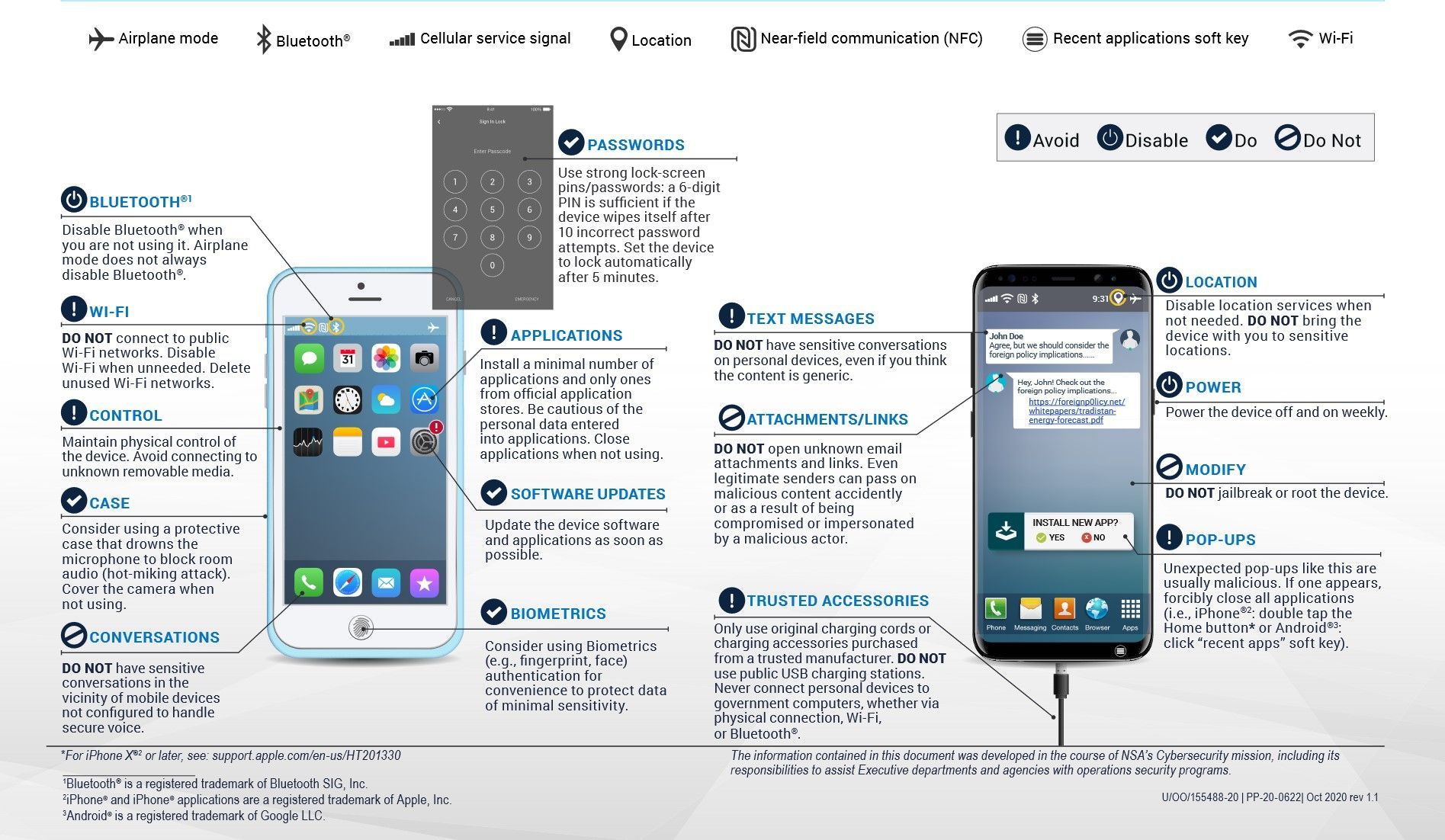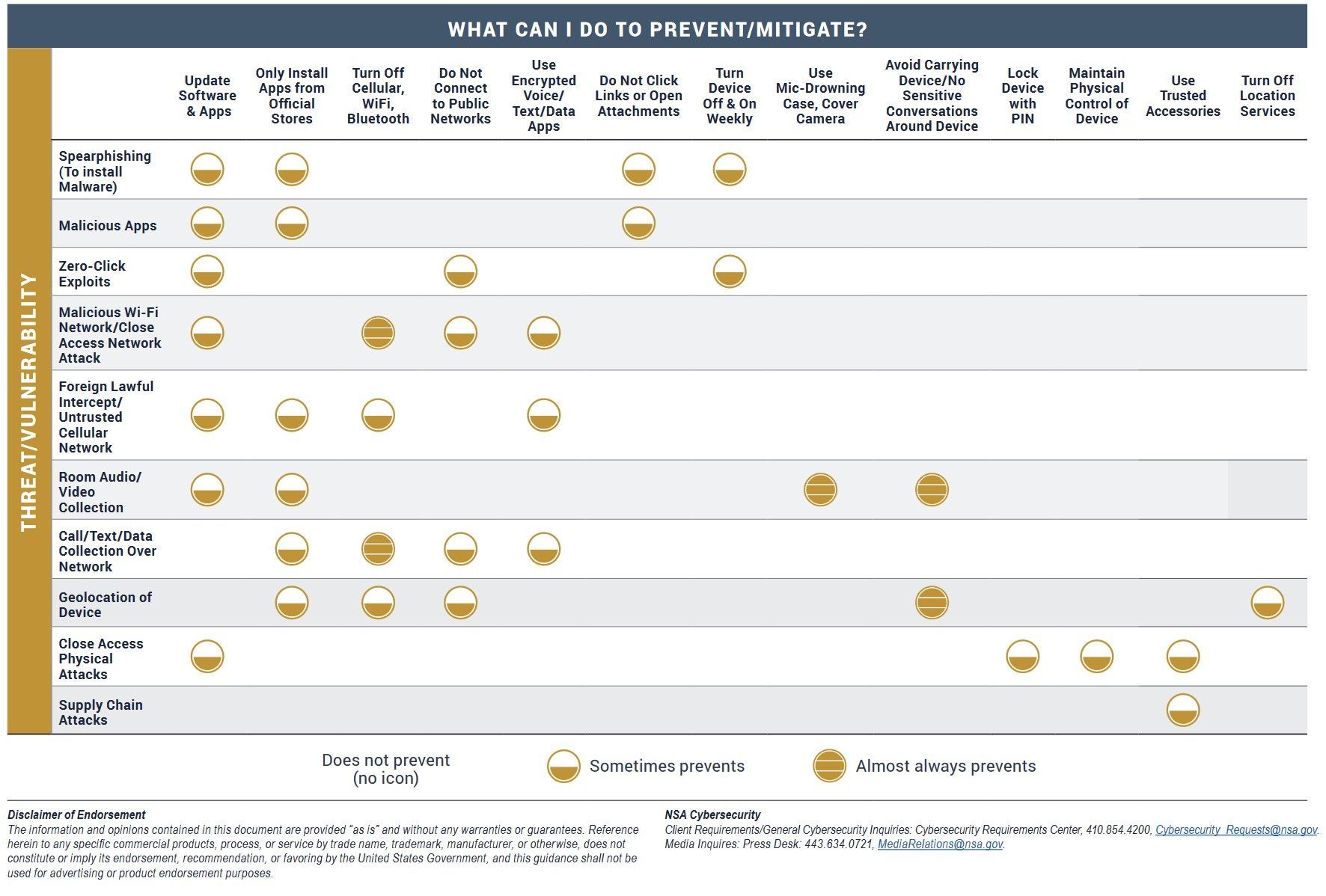Why the NSA Advises You to Turn Off Your Phone Once a Week: A Simple Security Practice
Protecting Your Mobile Device
Mobile phones face numerous security risks in today’s digital landscape. Attackers use various methods to compromise devices, steal data, and even take control of phones remotely. To combat these threats, the
National Security Agency (NSA) recommends several key practices
One simple yet effective technique is to
turn off and restart your phone weekly . This action can disrupt certain types of malware and make it harder for attackers to maintain control of a compromised device. While not foolproof, it’s an easy step that can boost security.

Other important measures include:
- Updating apps and operating systems promptly
- Installing apps only from official stores (Apple App Store, Google Play)
- Avoiding suspicious links and attachments
- Being cautious on public Wi-Fi networks
- Disabling Bluetooth when not in use
- Using strong passcodes (at least 6 digits)
- Enabling biometric authentication (face or fingerprint)
- Using only trusted charging accessories
- Turning off location services when unnecessary
These practices help protect against common threats like phishing, malware, spyware, and unauthorized access.
Smartphone users should be aware of various attack methods:
- Spearphishing: Targeted attacks to install malware
- Zero-click exploits: Infections without user interaction
- Malicious apps: Software designed to harm or steal data
- Network attacks: Intercepting data on unsecured Wi-Fi
- Spyware: Programs that monitor device activity
- Physical access: Brief contact allowing malware installation

To further enhance security, consider using a virtual private network (VPN) when connecting to public Wi-Fi. This encrypts internet traffic, making it much harder for attackers to intercept sensitive data.
Mobile security apps can provide additional protection by scanning for malware and ensuring basic security features are enabled. These tools complement built-in security measures on both iPhone and Android devices.
It’s crucial to be cautious with app permissions. Only grant access to device features and data when necessary for app functionality. Regularly review and revoke unnecessary permissions to minimize potential data exposure.
Staying vigilant against phishing attempts is essential. Be wary of unexpected emails, texts, or messages asking for personal information or urging immediate action. Legitimate organizations rarely request sensitive data through these channels.
When it comes to passwords, using unique, strong credentials for each account is vital. Password managers can help generate and store complex passwords securely. Enabling two-factor authentication adds an extra layer of security to important accounts.
Regular software updates are critical for maintaining device security. These updates often include patches for newly discovered vulnerabilities. Enabling automatic updates ensures devices receive these fixes promptly.
For those using personal devices for work, following company security policies is important. This may include using specific security apps, avoiding certain types of public Wi-Fi, or adhering to data handling guidelines.
By implementing these security measures, smartphone users can significantly reduce their risk of falling victim to cyberattacks. While no security approach is perfect, combining multiple layers of protection makes it much more difficult for attackers to compromise mobile devices and access sensitive information.
Common Questions About Phone Reboots
Why does the NSA suggest regular phone restarts?
The NSA recommends weekly phone restarts to clear out potential malicious code . This simple step can stop harmful programs from running continuously. It’s an easy way to boost device security.
How do phone restarts improve security?
Restarting a phone:
- Clears temporary files
- Stops running processes
- Makes it harder for malware to persist
Are there risks if I don’t restart my phone?
Not restarting a phone regularly may allow:
- Malware to run for longer periods
- Hackers more time to access data
- Security vulnerabilities to remain open
While not restarting doesn’t guarantee problems, it misses an easy security step.
What are the security gains from periodic phone shutdowns?
Periodic shutdowns can:
- Disrupt ongoing hacking attempts
- Clear out temporary malware
- Reset some system settings
Can powering off stop hackers?
Powering off a phone can:
- Interrupt active hacking attempts
- Clear RAM and cached data
- Force malware to restart from scratch
While not foolproof, it creates hurdles for attackers trying to maintain access.
How often should phones be restarted for security?
The NSA suggests restarting phones at least once a week . More frequent restarts may offer added benefits. The key is to make it a regular habit to enhance device security.
Building better solutions for better business®




